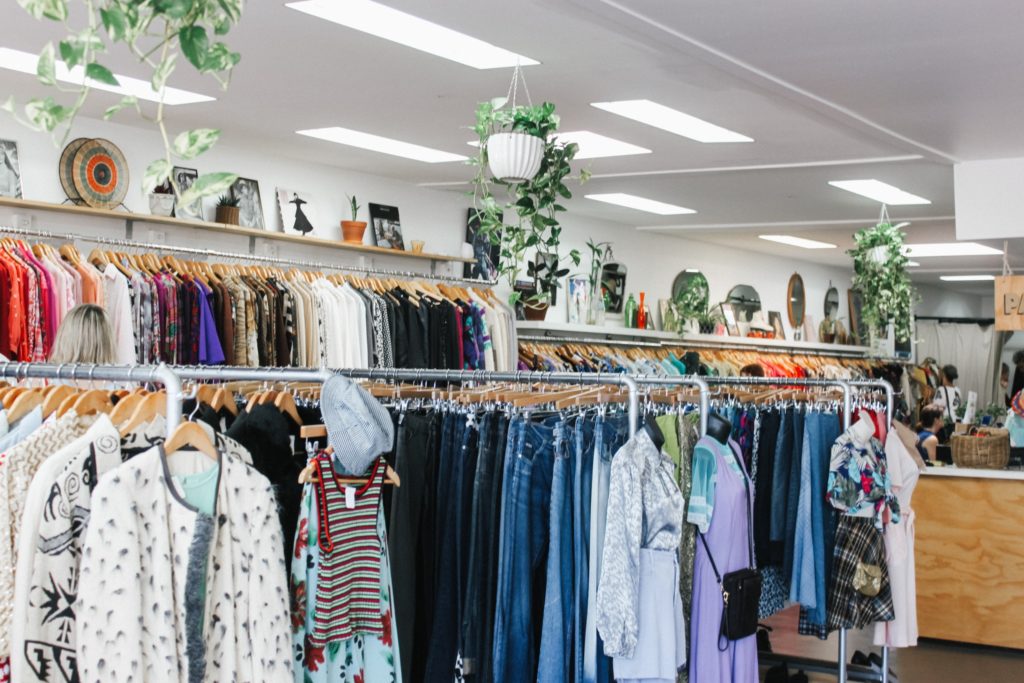Trauma-Informed Giving: Explaining Palmer Home’s Donation Process

As a privately-funded organization, Palmer Home is immensely grateful for our supporters who make our mission possible. We are often asked whether we accept donations beyond financial gifts, particularly gently used clothing, bedding, and toys. The answer is that we do not, though our thrift stores do. Below we explain why we don’t accept these kinds of gifts, and how to donate items to our thrift stores.
Why We Have a Donation Policy
We are humbled when someone asks whether they can donate gently used items to the children in our care. It is incredibly selfless and generous to want to give to a child at Palmer Home.
1. The ever-revolving needs of children of various ages and body types makes it difficult to store donations.
We serve children of all ages and all body types, so we never know what kind of clothing we may need at a certain time. It would take a tremendous amount of storage on our campus to house donated items from our supporters, as well as volunteers to inspect, wash and organize every piece.
Saying yes to clothing donations on our campus for children in our care could leave us with an abundance of clothing of certain sizes while no options for others. We want to be sensitive to the needs of all body types and all sizes through the intentional addition of new wardrobe items selected by the children themselves to ensure we have enough of what is needed when it is needed.
2. Choosing what to wear can help instill confidence and preserve dignity of children in difficult situations.
There’s a profound sense of dignity in being able to wear clothes that you picked out yourself from the store that fit your unique body well. For a child at Palmer Home, it can instill self-confidence and help them feel that they are important and special.
Keep in mind the children we serve are already having to acclimate to life in a new place without their primary caregivers. By allowing them the opportunity to choose their own clothing, it gives them a feeling of empowerment and control in a world that’s been turned on its head.
As Palmer Home continually works to become a more trauma-informed organization, we realized the most trauma-informed approach is to allow a child to choose. The same is true for bedding, toys and other household goods. By allowing a child choose their own, it can help boost their self-worth and gradually help restore their sense of autonomy.
Additionally, these shopping trips with houseparents when a child first comes to Palmer Home are wonderful bonding opportunities that can help build trust and connection.
3. What we choose to accept or decline can form a child’s perception of their worth and value.
Imagine being six years old and having already experienced homelessness and food insecurity. You’ve never had your own room before, or sometimes even your own bed. The few pieces of clothing you do have are tattered and haven’t been washed in a while.
Imagine this: it’s Christmastime, and although you celebrate the holiday in school, it doesn’t mean much in your family. One day something particularly difficult happens, and your family is referred to Palmer Home for Children. You come to live on the Palmer Home campus. From day one you are told that you are loved, you are special, and you matter so much to others – especially to God. You’d never heard this before.
You are given your very own room and your very own bed. You’re told that when you feel ready, you can go to the store with one of your houseparents and pick out your favorite bedspread and shop for new clothes that fit. If you don’t have a coat or sweaters for winter to keep you warm, you’ll also be able to pick those out too. You really do feel special.
Your houseparent asks what you’d like for Christmas. You didn’t think it was possible, but on Christmas morning you unwrap a box to find the exact doll you’d been dreaming about playing with. Even though they’re not your relatives, you feel like the grownups at Palmer Home listen to you and have your best interest at heart. You feel heard, and you begin to think that you are a cherished member of this new home.
As the weeks pass, you begin to trust these new caregivers more and more. You don’t realize it yet, but you are steadily progressing down on a path toward hope and healing.
Building Blocks of Trauma-Informed Care
It may seem farfetched that new clothing or bedding could help a child heal, but they are building blocks in the overall approach of trauma-informed care.
“I can’t express how much it means to be able to shop for the children like a typical mother would,” said one houseparent. “It’s especially humbling on special occasions like birthdays, Christmas and graduations. Palmer Home gives me budget to shop for each child like they’re my own. It’s something that makes Palmer unique and something I’m really grateful for. I know the children are so appreciative too. It helps them feel a little more like a child in a ‘traditional’ family when they’re experiencing a situation that most children – not to mention adults – will never understand.”
Your financial donations are what make all of this possible – from the nurturing caregiver employees to the warm beds to the personalized gifts hand-picked by their houseparent who knows them best.

Donate to a Palmer Home Thrift Store
Your gently used items may still give back to the children. We currently operate three Palmer Home thrift stores in Mississippi – in Columbus, Starkville, and Tupelo – that accept clothing, toys, furniture, and home goods. All profits go directly to funding our mission; your gifts do benefit the children at Palmer Home.
The stores are also a great place to volunteer if you or your organization are interested in donating your time! For more information about the thrift stores, including the items they can and cannot accept, please visit palmerhome.org/thrift-stores.
We are so appreciative of your desire to give back to children we serve. If you have further questions, we invite you to reach out to our team at development@palmerhome.org.



